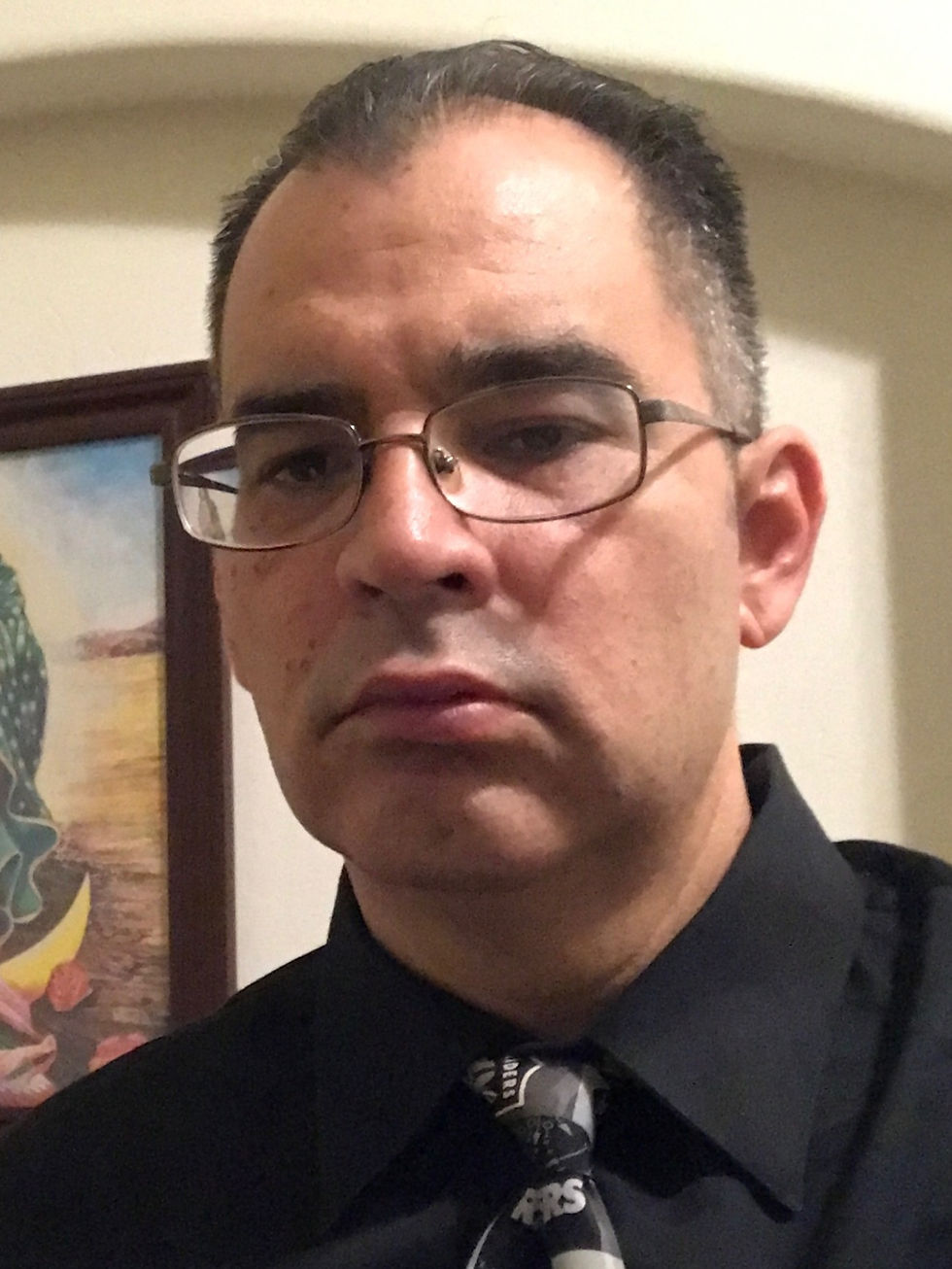- Convening Storytelling Team

- May 16, 2023
- 3 min read
By Alexandro “Salo” Escamilla

We are pleased to share with you today a piece from our storytelling series of reflections and noticings coming out of our convening in Tucson!
Please stay tuned for more writings from our team of storytellers and revisit the blog here to see them all in the coming months.
The ALP Conference concluded on February 17. 2023, and now the stories start coming in. A team of twenty-seven—including eight educators from Tucson—were a storytelling team in Tucson. For the next few months, this blog will share the stories of those folks.
CRPI Staff and ALP participants engaging in a dynamic discussion about African American and Mexican American courses and curriculum units (left). Mural depicting the Four Tezcatlipocas painted by Wakefield Students and teachers in 2006 (middle). Chucho Vai Sevoi, delivering the welcoming address at ALP Conference (right).
My experience at the ALP Conference made its way full circle on our trip to Wakefield Middle School, located in Barrio Chicano, near the City of South Tucson. Our discussion there made me reflect on the powerful and profound keynote address from Chucho Vai Sevoi, a chantlaca who goes back to when we were both youth and involved in el movimiento (the movement).
His message about the worth of indigenous epistemologies made me reflect on the Four Tezcatlipocas; Tezcatlipoca, Quetzalcoatl, Huitzilopochtli and Xipe Totek. Thinking back to 1998, when Chucho, myself, and about 40 other Chicano Youth representing Tucson MEChA (Movimiento Estudiantil Chicana/o de Aztlan) Central attended the MEChA National Conference hosted by the Phoenix College chapter.
The entire Tucson contingent attended a workshop facilitated by Xicano elder and founding member of Tonatiera, Tupak Enrique Acosta, where we were introduced to concepts known as the Four Tezcatlipocas. Tupak eloquently explained how the Tezcatlipocas offered an indigenous Chicana/o/x framework that could potentially be used as a foundation for stability and harmony in life and education for Raza youth.
At Wakefield the ALP participants engaged in a dialog about the components of Culturally Relevant and Responsive courses. Our dialog had me thinking about how Wakefield was my first teaching assignment in TUSD, and how the Xicano/Mexicana/Raza, Yaqui and Tohono O’odham students there, taught me so many lessons about what these concepts really mean and represent.
Most importantly, however, these students (who I refer to as los chamacos legendarios de Wakefield) taught me how to apply the Four Tezcatlipocas to curriculum, pedagogy, and instruction. Our daily practice was to recite the following dichos based on The In Lak’ech and The Four Tezcatlipocas that we learned from another chantlaca, Dr. Curtis Acosta and his students from Tucson High School.
*Chantlaca: Nahuatl for Homie/camarada/good friend
* Tonatierra is a community-based Indigenous rights non-profit organization based in downtown Phoenix, AZ. focused on advancing Indigenous Peoples self-determination, sustaining cultural and spiritual traditions.
*Dichos: Mexican sayings and/or quotes that instill lessons, values, and truths about life on Earth.

About the Storyteller

Alexandro “Salo” Escamilla is a Chicana/o/x Studies and social justice educator of twenty-one years in Chukson (Tucson), Arizona and within the Tucson Unified School District. A key voice in the development of the Mexican American/Raza Studies Department, and the Culturally Responsive Pedagogy and Instruction Department of the same district, as well as a social studies, history, government and literature teacher at the middle and high school levels; Salo has successfully developed curriculum, instruction, and pedagogy based on Chicanismo, carnalismo, and la cultura cura. These concepts led to unprecedented success in reading, writing, and math, essentially eliminating the opportunity gap in his Chicano Studies Classes. Following the attack and elimination of MARSD in 2012, he continued this work, piloting the culturally relevant history and government classes at Tucson High Magnet School. He currently serves as a curriculum and instruction specialist, for teachers implementing Culturally Relevant curriculum, and is a PhD student in the University of Arizona’s Teaching, Learning, and Social Culturally Studies Program.





























